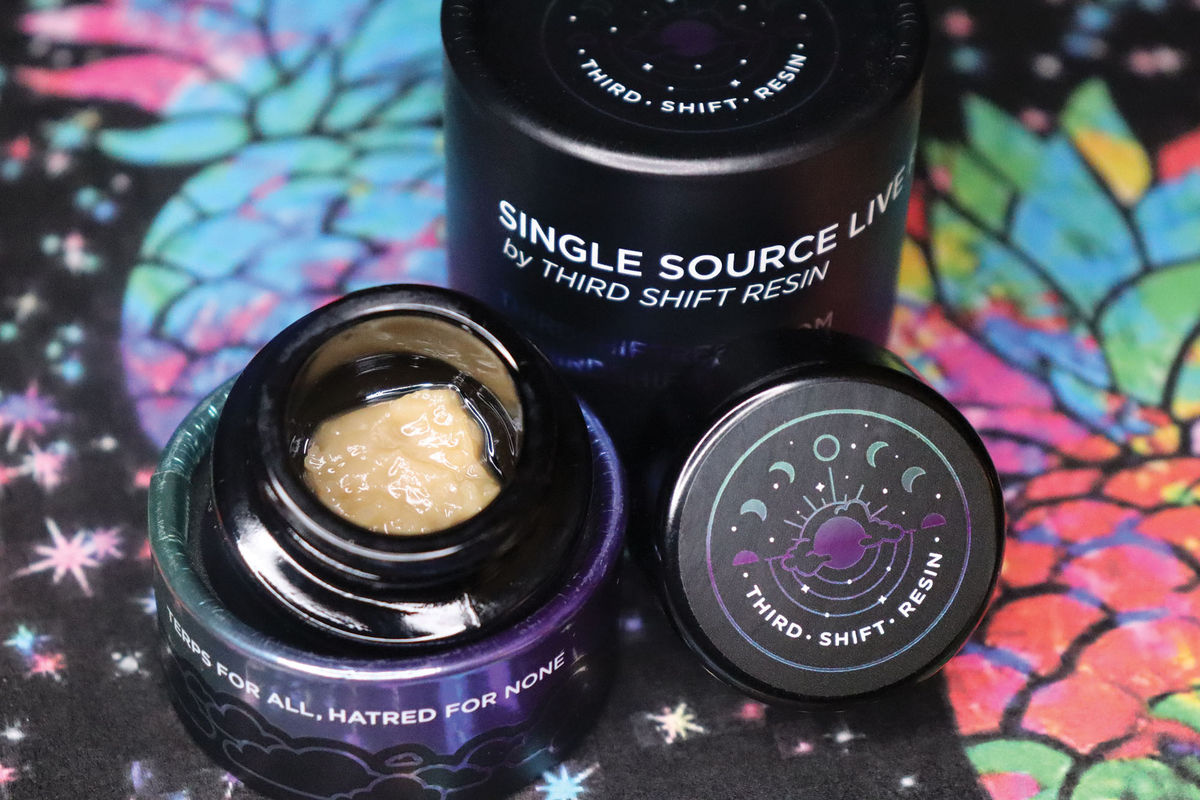A newcomer to Maine’s recreational Cannabis market, Third Shift Resin is proving to be a welcome addition to the state’s burgeoning adult-use industry thanks to a focus on single source, whole plant, fresh frozen, farm-to-table solventless concentrates. Third Shift uses freshly harvested plants, which are processed by deep-freezing the material immediately – resulting in a more complete preservation of terpenes. The buds are then washed with ice water and trichomes are collected using screened bags. The end product is then pressed into rosin.
Third Shift Resin’s staff are true terp heads and the company is pulling out all the stops to set their products apart from the rest of the industry. Their packaging creates the feeling of receiving something valuable and even collectible. While many other Cannabis and concentrate producers use square boxes or clear jars, Third Shift employs circular boxes and black-out jars for their products. Clearly, the company knows how to stand out by including unique touches that appeal to the consumer.
The Pineapple Sundae Driver is an in-house mix of strains that combines the complexity of their Hell’s Kitchen Kush and extra tutti-fruity Sundae Driver. Oozing with terps, this 90u live rosin reeks of melting grape candies and whipped cream, along with notes of citrus and gas. Consumed at low temp, this live rosin is otherworldly. After each dab, terps linger on your palate as the room fills with a pleasing potpourri aroma.
As for the hash itself, it doesn’t get better than first-wash 90u (a highly desirable measurement for the size of the holes in the screening bags because it collects the resinous heads of trichomes). Third Shift’s Pineapple Sundae Driver is truly the crème de le crème and demonstrates the company’s top tier quality control. And if you combine it with just about anything it’s going to slap, thanks to a terpene profile so distinct you could pick it out in a lineup of 100 different varieties. Be sure to grab some of this if you come across it … you’ll thank me later.
This article was originally published in the March 2022 issue of Northeast Leaf.
View our archive on issuu.







